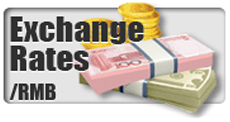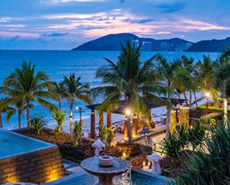
Downtrend of Chinese ferrosilicon for the beginning of 2019
----Interview with Fang Yijun
Chairman
Baotou Augmul Metal Alloys Limited Company
Chairman
Baotou Augmul Metal Alloys Limited Company
As one of earliest industrial and trading companies focusing on ferrosilicon in China, Augmul has been engaged in ferrosilicon international trading for more than 20 years, especially in Japanese market. Mr. Fang has insightful opinion on Chinese ferrosilicon domestic and overseas market.
Asian Metal: Thank you for joining us, Mr. Fang. Would you please introduce your company briefly?
Mr. Fang: Thank you for having me here. Our company established in the late 1990's, totally focused on ferrosilicon international trading business at the beginning, including ferrosilicon 75%min, 72%min and 65%min, low Al FeSi, high carbon FeSi, ferrosilicon slag, lump, and all various sized ferrosilicon. After 5 years' trading experience, we built up two ferrosilicon furnaces of 12,500KVA and one of 8,000KVA in Baotou, Inner Mongolia after realizing that we need to integrate trading and producing. The current annual production capacity is around 30,000t.

Asian Metal: What makes you stand out as an integrating industrial and trade company? Could you please share with us more specifically?
Mr. Fang: Comparing with trading company, we have more flexible capital turnover mechanism, and we have big advantage of purchase cost as we own furnaces. We can sell at lower prices than traders sometimes. When the production cost exceeds selling price, we still can produce under the heavy pressure, keeping sustainable ferrosilicon supply to our overseas clients.

Asian Metal: What's the current production cost for ferrosilicon 72%min for you company?
Mr. Fang: The current production cost of ferrosilicon 72%min is RMB5,600-5,700/t (USD813-827/t) for us now. The current electricity cost is RMB0.375/kwh with no discount for staggering peak production. The purchase cost of silica is around RMB160-170/t (USD23-25/t) delivered from Ningxia to Baotou. As silica mineral need to be prepaid, the price of silica has more influences to ferrosilicon production cost now. If the plant has sufficient money, they can get lower prices of silica. The price of semi coke is around RMB1,000/t (USD145/t) delivered. The current price of ferrosilicon 72%min is closely approaching to production cost, making some ferrosilicon plants reduce or suspend production soon.

Asian Metal: How do you predict the price trend in the following month? Does the price would go down further now that the price is almost approaching production cost? What's your strategy with production cost exceeding selling price?
Mr. Fang: It's probably to go down further in the following weeks due to surplus supply now. Along with the price dropping below production cost, some plants would suspend production. The price would stop dropping for some time and then rebound along with decreasing supply. Confronted with production cost overhang, we can persist with production.

Asian Metal: What market you're focus on now, domestic Chinese market or overseas market?
Mr. Fang: We started with international trading business 20 years ago, and concentrated on overseas market at that time. However, we enlarged our business with Chinese domestic steel mills 5 years ago. Presently, domestic clients can consume around 50%min of our total output. Previously, overseas market was better than domestic market. But along with the development for recent 10 years for Chinese steel industry, the demand from Chinese steel mills is sustainable and mature now, and payments from steel mills are faster and easier than before as well. From the perspective of strategies from larger sized ferrosilicon plants, they focus on internal demand now. On the other hand, Chinese government already released official document that they will not reduce ferrosilicon export duty for 2019. Currently, our annual output is around 30,000t, and sales volume from overseas market is slightly higher than domestic market.

Asian Metal: Mr. Fang, you have been doing export business to Japanese market for quite a long time. How do you think the current demand of ferrosilicon in Japan, and what's your opinion about statistics changes of Chinese ferrosilicon export to Japan these years? Can you share some experiences with us?
Mr. Fang: We have been engaged in Japanese market for almost 20 years. Main consuming markets are Japan and South Korea in Asia, and the annual consumption volume of ferrosilicon in Japan is 300,000-500,000t. Japanese end-users have strict requirement of quality. However, their prices are lower than clients from Europe and South America at the same time. Japanese enterprises are very care about contract spirit. You don't have to worry about not receiving money after delivering shipment, which rarely came across in Japan.
The consumption volume of ferrosilicon in Japan decreased slightly as the output from steel mills decreased recent years. The export volume of Chinese ferrosilicon to Japan decreased as more competitors from Russia, Malaysia and Brazil can provide competitive offers than before.















